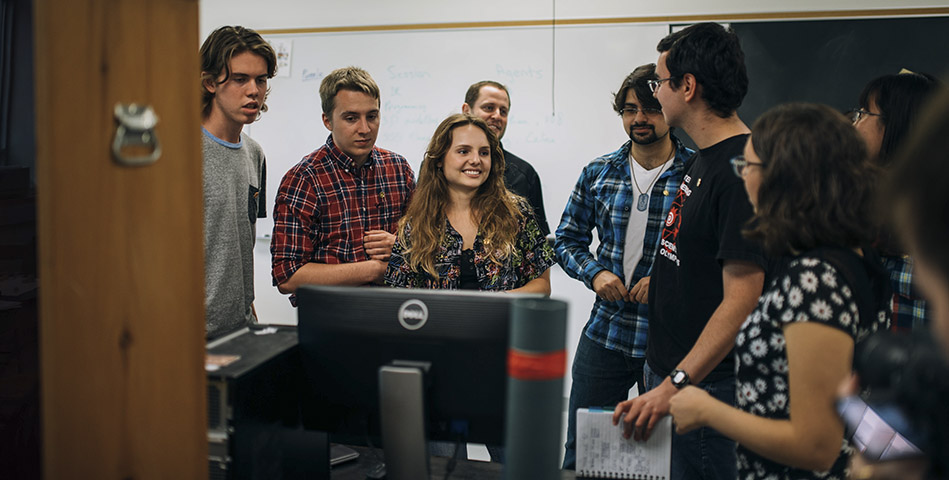MACgyver workshop challenges students to think on their feet

As students return to their labs for another academic year, they do so with MacGyver-like skills sharpened over the summer. While the world was busy battling for Pokemons, several engineering students battled an evil genius on campus and saved the world from extinction.
The plot to detonate a bomb may have been fictional, but the experience gained through the series of workshops designed to boost the lab skills of undergraduate students were real.
The evil bomb plot was the finale to a series of skill-testing workshops held throughout June and July and run by Ayse Turak, an Engineering Physics Assistant Professor, and her graduate students.
A handful of undergraduate students were put to the test with over-the-top mock situations inspired by duct-tape-wielding secret agent Angus MacGyver, the hero of the 1980s classic TV show. The missions posed regular, high-tech espionage threats to students who had to solve puzzles using key engineering concepts found in labs.
Each MacGyver session began with Mission Control issuing the latest high-tech espionage threat. In-house “tech experts” gave a crash course in an engineering concept that students had to use to diffuse the threat. Students acted as recruits, working their way to becoming full agents.
“It was so interesting because students were set up with scenarios that can involve things we’ve never worked with before; it’s been a great opportunity to learn and be creative at the same time,” said Emma Mogus, an incoming McMaster student who has been working with Turak’s research group over the summer.
Education aside, the students were equally invested in the over-the-top theatrics of the challenges, said Turak. “They dove in and were genuinely concerned if their work saved an agent in the field. The buy-in has been great and it kept the learning fun.”
Students faced a new challenge each week, such as writing code to decipher a secret message or creating electrical circuits to restore power during a city-wide blackout. Other tasks involved soldering, 3D visualization and modelling, thermodynamics, and crystallography. With an array of tools available and tech experts there to provide support, it was completely up to the students to figure out what to use to crack the case.
“Our challenges were designed to be solvable and to push students to their limits in a fun and entertaining way,” said Erinn van Wynsberghe, one of Turak’s graduate students running the workshop and serving as a tech expert. “The ingenious ways that the students have applied the concepts has been great to see, and it was challenging to us as organizers to have to come up with more creative, engaging puzzles for them to solve.”
The unique concept of the workshop earned Turak a Petro Canada McMaster University Young Innovator Award last year, for serving as an enrichment opportunity for students currently working with professors.

